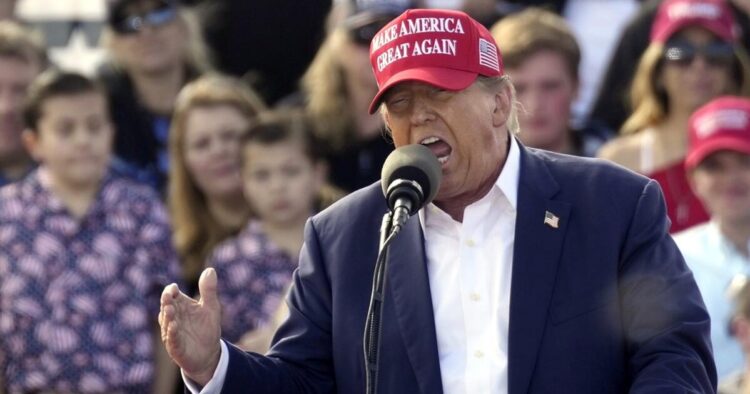Republican presidential candidate Donald Trump has ignited controversy with remarks targeting Jewish Americans who vote for Democrats. Trump’s comments, made during an interview with his former adviser Sebastian Gorka, suggested that Jewish voters who support Democrats “hate their religion” and “everything about Israel.” These statements have drawn widespread condemnation from the White House, Democratic leaders, and various Jewish organizations.
Critics, including groups like the Anti-Defamation League and the American Jewish Committee, have condemned Trump’s remarks for linking religion to political affiliation. White House spokesperson Andrew Bates stated that spreading such “toxic, false stereotypes” is unjustifiable and threatens fellow citizens. Similarly, Democratic Senate Majority Leader Chuck Schumer criticized Trump’s remarks as highly partisan and hateful, emphasizing his bipartisan efforts to maintain the US-Israeli relationship.
Schumer, a prominent Jewish leader, has also recently criticized Israeli Prime Minister Benjamin Netanyahu for hindering peace efforts in the Middle East. This comes amid ongoing conflict in Gaza between Israel and Hamas militants, which began with attacks on Israel in October. President Joe Biden, echoing Schumer’s concerns, emphasized the need for peace and criticized Netanyahu’s response to Schumer’s comments.
Responding to the controversy, a spokesperson for the Republican Jewish Coalition defended Trump’s remarks, highlighting concerns about the Democratic Party’s stance on Israel. However, the spokesperson expressed confusion over Trump’s assertion that Jewish Americans who vote for Democrats hate their religion. This sentiment was echoed by many Republicans who questioned the lack of outrage within the Jewish community.
Trump’s history of controversial statements on matters relating to Judaism and Israel has further fueled the debate. In the past, he faced criticism for remarks made after the Charlottesville protests in 2017, where he equated white nationalists with protesters against racism. Despite this, Trump took unprecedented steps during his presidency to support Israel, including recognizing Jerusalem as its capital and relocating the US embassy there.
Since leaving office, Trump has continued to draw criticism for his associations with individuals linked to white supremacy. Additionally, President Biden has criticized Trump for using language reminiscent of Nazi rhetoric. Biden has also faced pressure from within his party to reassess US support for Israel, particularly regarding the ongoing conflict in Gaza.
A Pew Research Center poll conducted in 2020 revealed that a significant majority of American Jews identified with the Democratic Party. However, a notable minority leaned Republican. As the political landscape continues to evolve, discussions surrounding the relationship between political affiliation, religion, and support for Israel are likely to remain contentious issues in American politics.

















Comments